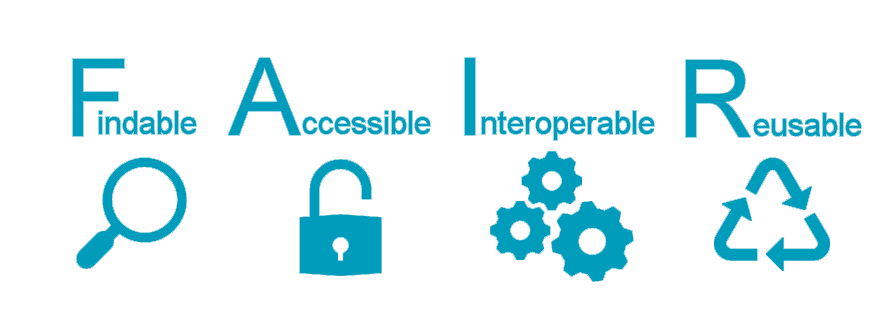Did you know? As of 01.08.2023, the publication of FAIR data, i.e. Findable, Accessible, Interoperable, Reusable, is mandatory for scientists at universities and non-university research institutions that (want to) receive funding from the DFG.
This is regulated in the DFG’s “Guidelines for Safeguarding Good Scientific Practice” codex (https://doi.org/10.5281/zenodo.6472827), which already came into force on 01.08.2019 and whose implementation period (after already being extended once) now finally expires on 31.07.2023.
In it, “Guideline 13: Establishing public access to research results” formulates that not only research results are to be included in the scientific discourse, but also, among other things, the underlying research data. The explanations also explicitly refer to the FAIR principles.
So what does this mean?
A data management plan (DMP) has long been an integral part of the DFG’s requirements for research proposals. The findings on FAIR data storage formulated in the Code now go beyond this. Narrowly formulated reasons for exceptions (e.g. for patent applications) leave little room for maneuver. Those who do not comply will have to reckon with the loss of funding as of August.
Chemists are therefore well advised to be prepared for this regulation. However, in order to take into account “subject-specific relevant recommendations on standards, methods and infrastructures “, as it says on the DFG website, you also need to know them – and this is not about chemistry, but data storage. ELN, “recognized” repositories, metadata, terminologies, ontologies – anyone who stumbles here should quickly find out.
Help is at hand
The NFDI4Chem consortium offers regular workshops, both online for individual participation and exclusively on-site at your institute. Our extensive Knowledge Base will help you with all questions regarding chemical research data.
We are also happy to advise you on the workgroup/institute/department-wide use of the open source ELN software Chemotion. Please contact us!

Image Attribution: SangyaPundir, CC BY-SA 4.0.